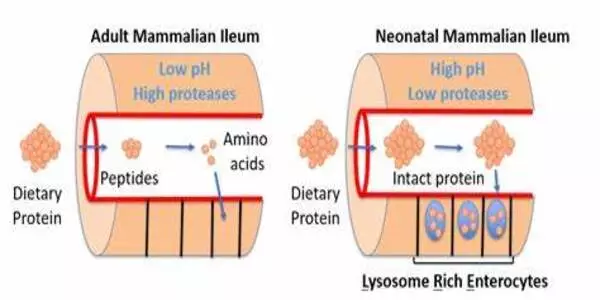Understanding the link between neonatal proteins and adult health necessitates delving into the complex interplay between early-life factors and long-term health outcomes. The researchers looked into two complement components that are important components of the immune system and have been linked to schizophrenia and autoimmune disorders. They investigated the relationship between two protein concentrations – C3 and C4 – and the risk of developing six mental disorders later in life in over 68,000 newborn babies.
Professor John McGrath of the University of Queensland led the study, which discovered that the concentration of the C4 protein, an important component of the immune system, was not associated with the risk of mental disorders.
However, the study also found that a higher concentration of the C3 protein lowers the risk of schizophrenia in women, and studies based on the genetic correlates of C4 discovered strong links with a variety of autoimmune disorders.
Complement components are proteins that collaborate with your immune system to protect your body from infection and autoimmune disorders. We looked at the relationship between two protein concentrations – C3 and C4 – in over 68,000 newborn babies and the risk of developing six mental disorders later in life.
Professor McGrath
According to Professor John McGrath of the University of Queensland’s Queensland Brain Institute, his colleagues at Aarhus University in Denmark studied two complement components linked to schizophrenia and autoimmune disorders.
“Complement components are proteins that collaborate with your immune system to protect your body from infection and autoimmune disorders. We looked at the relationship between two protein concentrations – C3 and C4 – in over 68,000 newborn babies and the risk of developing six mental disorders later in life,” said Professor McGrath.
“A growing body of evidence links C4 to brain development, which could subsequently have implications for the risk of mental disorders. However, in our study, we found no associations between C4 concentration and mental health disorders. In an expanded sample, we found higher C3 concentration was associated with a reduced risk of schizophrenia in females only.”

The researchers also looked into the genetic correlates of these two proteins and the risk of autoimmune disorders, and discovered that C4 was associated with an increased risk of five different types.
“Higher C4 concentration was associated with a lower risk of several autoimmune disorders and a higher risk of others,” McGrath said in a statement. “The mechanisms underlying the links between C4 and an increased or decreased risk of autoimmune disease remain unknown. We hope that our findings will help to direct future research into the relationship between these two complementary components and health outcomes.”
The study was published in Cell Genomics. Professor McGrath’s work is funded by the Danish National Research Council, and the Queensland Centre for Mental Health Research.
















